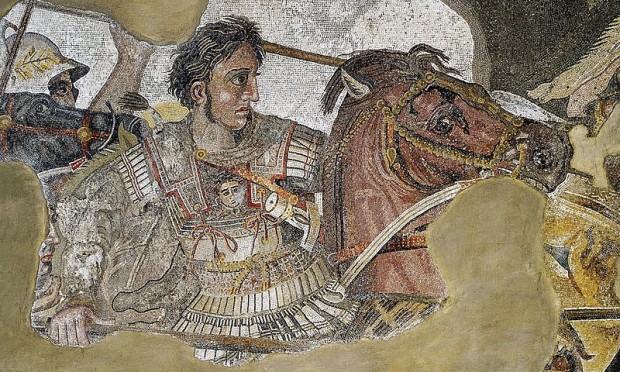One of the biggest mysteries of the archaeological world is the location of Alexander the Great's tomb, which up until this day, is still unknown. For many decades, researchers, scientists, conspiracy theorists, and archaeologists have struggled and went through many studies and research as to where the mysterious tomb lies, and no one has ever succeeded ever since.
However, the death mystery might have come to an end, now that two contemporary experts believed they have found the lost piece in the riddle. Dr. Andrew Michael Chugg, the author of The Lost Tomb of Alexander the Great, and famous archaeologist Liana Souvaltzi believes that they are only one step closer in solving the mystery and finding the remains of the Great Alexander.
But, just like other theories and studies about the lost tomb, the two research partners also had their struggles along the way.
Chugg and Soulvatzi's Quest
Chugg and Soulvatzi's study was not easy. In fact, they admitted that it was a very long discussion and study. It also came to the point that their study was blocked by Greek and Egyptian governments that almost stopped their whole research.
With them being prohibited by the two governments, Chugg and Soulvatzi went on their separate ways from the borders of Libya to Venice, Italy. While they were on their quest to seek the tomb of Alexander the Great, it led them to historic heights that were relevant to the archaeological community.
Chugg and Soulvatzi went on and searched about the ancient king and where he has buried, how he died; and every answer to their questions only lies to an age-old stone.
How Alexander the Great Died
While it is still unclear how the ancient king died to most people, there are studies and research that were conducted and were given credit as to why and how he died.
In 2019, Dr. Katherine Hall of the New Zealand University of Otago has a renounced theory about Alexander the Great's death.
According to her, Alexander the Great died in Babylon in 323 B.C after he suffered from Guillain-Barre Syndrome (GBS). The ancient king got very sick and shown symptoms of abdominal pain and progressive paralysis. The auto-immune disorder led to the king with his inability to move, thus, he was paralyzed. However, despite these symptoms, Alexander remained physically fit.
Many experts and historians were wondering why the ancient king's body did not decompose after being dead for days. According to Hall, the GBS syndrome had made Alexander look he was sick, but the truth was he was very much alive during that time, but due to his inability to say so, he couldn't stop the people to put him in a tomb.
Hall also revealed that she has worked about 10 cases of GBS, and according to her the disorder is more of a combination of ascending paralysis with a normal mental ability.
The Quest for Alexander's Tomb
According to Soulvatzi, she believed that Alexander's wish was to be buried in an Egyptian temple, which is the temple of the Egyptian god Amun Ran. Soulvatzi went to the Oasis of Siwa in 1984 and in 1989, she was granted for her request.
Inside the temple, they found statues of lions and a 5,651 square foot Hellenistic royal tomb. According to Soulvatzi, she believed that the carvings and inscriptions in the tomb tell a story of how the body was transferred and was written by Ptolemy, who is Alexander's famous companion.
In 1995, it was announced that Alexander the Great's tomb was discovered. However, the Greek government called upon Egypt's government to stop the excavation and caused more tension between the two governments. Despite the boiling arguments between the two governments, Soulvatzi continued to fight for her study and quest.
Chugg had a different theory, and he explained it in his published book. He said that Alexander's original tomb was located near the Memphis in Egypt at the Serapeum complex. It was said to be built by pharaoh Nectanbo II.
16 years after Chugg's book was published, his evidence became and gained more support because of a masonry piece discovered in Venice, Italy that matched the dimensions of Nectanbo II's sacrophagus in the British Museum.

 Share on Facebook
Share on Facebook

























